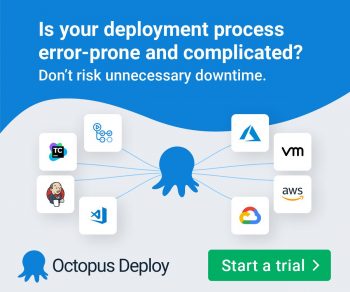Businesses have long recognized the importance of Digital Transformation for achieving greater resiliency and agility in this hyper-digital world but continue to be challenged with where to make the most impactful investments. Over the past decade, companies have dedicated much effort determining how to attract their audience, how to design their brand, and how to achieve product-market alignment, but there is more to transformation than attracting new demand.
While many companies have been great at building new products and experiences, they have not sufficiently concentrated on the operating platforms that support their business operations and are necessary to truly drive product development and enhance the customer experience. If companies are looking to remain relevant in this increasingly complex digital age, they have to shift focus. They must double down on reinventing the way data interacts with technologies, people and processes and transform their operations.
Successful transformation requires the right digital foundations strategy
To remain competitive and relevant in an increasingly volatile market, according to IDC*, by 2026, 60% of CIOs will redesign their operating model to optimize value stream, agile architecture, and risk management. To do so, it is no longer desirable nor feasible to “rip and replace” technology platforms in which companies have made significant investments. Companies do not have time or resources to effectively implement everything end to end. That is why more and more businesses are approaching their technology and infrastructure in a composable manner, selecting the best approach to leverage their existing technologies, combine them with new methodologies as needed and achieve desired outcomes that help them run their business more efficiently. Finding the right renewable approach requires a strategy that enables companies to modernize, transform, and reimagine what’s possible.
Building the right digital foundation is the baseline for business modernization. The foundation of a business underpins an organization’s technology infrastructure, including not only hardware, software, and networks, but also data, processes, and workflow automation – the fundamental building blocks for success. It includes everything from the technology platform itself, to third-party solutions, firewalls, and security to advanced technologies such as artificial intelligence and machine learning.
Digital transformation refers to the process of building out technologies to fundamentally change how an organization operates and delivers value to its customers. It is a journey that differs from business to business and can take many forms, from restructuring business processes to creating new products and services that capitalize on emerging technologies.
When designing their digital foundations strategy, companies have to view their efforts as part of a bigger picture.
- How is everything connected?
- If there is an issue or challenge here, how is that impacting things over there?
- How can I leverage existing infrastructure while implementing new capabilities?
- What does this mean in terms of the overall transformation journey?
In driving a successful digital foundations strategy, much of the focus today is on cloud architecture and integration. Companies are looking to fill the gaps that keep them from taking their business operations to the next level, uniting capabilities for cloud enablement, enterprise integration, data insights, and customer experience. This is all driven by the ability to better connect, automate, and optimize solutions, processes, and data. Businesses need to invest in their infrastructure in a way that increases collaboration, improves processes, and enhances data insights with solutions that bring everything together. None of these areas can operate in silos.
What this means in today’s economic environment
Even though the effects of an economic downturn continue to challenge businesses, many are starting to feel more confident about how things are going to play out economically through 2023. Organizations are now cautiously moving ahead with their transformation initiatives, shifting their focus from creative development and demand generation to resilience and optimization to remain competitive in a volatile economic landscape.
To do this successfully with limited resources, businesses must ask:
- How do we spend money to save money?
- How do we achieve more efficient and effective operations?
- How do we scale and maximize your infrastructure?
- How do we keep your digital foundation secure?
- How do we turn our digital foundations from a limitation to an enabler for innovation and growth?
- How do we infuse AI and automation into our core processes?
This is where what-if type analysis can be helpful in exploring new solutions that enable companies to fill in the gaps, helping them think through the best way to leverage advanced technologies to connect and run at maximum efficiency. This has two components:
- Adaptability and agility: An organization’s ability to continually adapt and innovate commercially to keep pace with consumer expectations.
- Resources: The amount of money a business is spending to support legacy infrastructure – as it relates to processes or technology
The role of digital foundations in digital transformation and business modernization cannot be overstated. An organization must have a robust and reliable operating platform in place to support the ambitious digital transformation initiatives they may undertake. Without a solid digital foundation, even the most well-conceived digital transformation project will likely fail. With the right digital foundation, companies will be able to realize the full potential of what’s possible for their business setting themselves up for success, today and tomorrow.
Argano, the world’s first and leading designer of modern Digital Foundations™, empowers companies to reimagine their business operations by integrating, automating, and optimizing the way data, technologies and users interact. Fortune 100 to Global Fortune 2000 trust us for a faster, more reliable journey to their best digital future. Learn more at www.argano.com.
Chip Register, Chief Executive Officer, Argano
As Chief Executive Officer, Chip Register is responsible for leading Argano’s strategy in providing end-to-end digital solutions to help clients transform business operations and optimize their competitive position. Previously, Chip service on the Executive Board of Publicis Group, one of the three largest media and communications holding companies in the world, and Co-CEO of Publicis. Sapient, its digital transformation division. Chip joined Publicis Groupe when it acquired Sapient Corporation in 2015. At Sapient, he was CEO of Sapient Consulting, one of its two operating divisions focused on industry-led consulting and IT services. In 2010, he was named one of the Top 25 Consultants in the World by Consulting Magazine. Chip serves on several Boards of Directors and Advisory Boards for companies innovating enterprise and consumer technologies and services.
*IDC FutureScape: Worldwide CIO Agenda 2023 Predictions

















